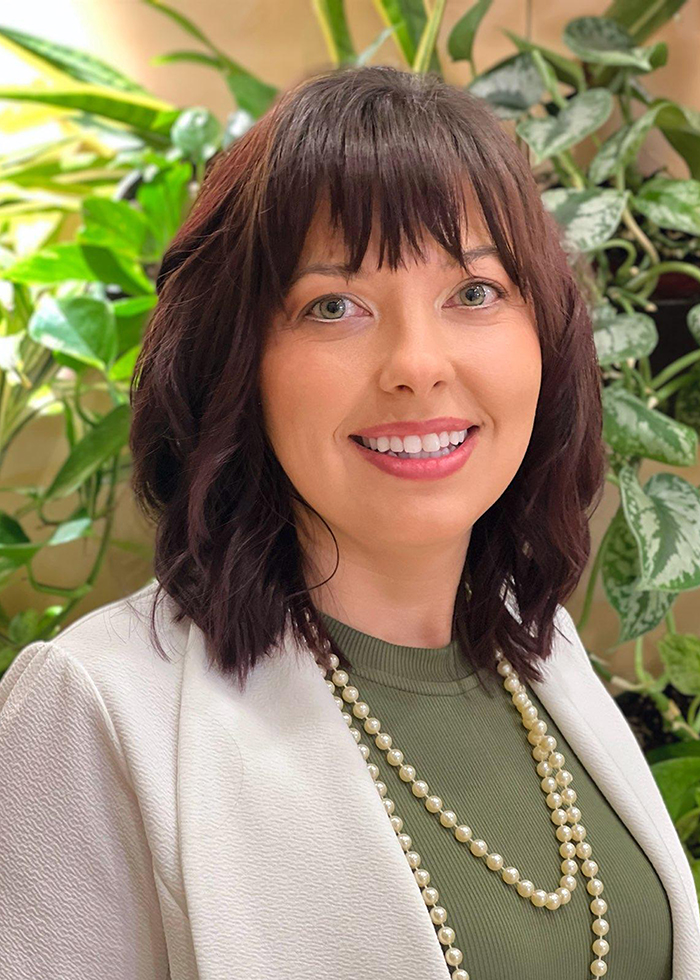By Tiffany Hopper, MSN, RN, OCN®
“You will never know it all, but you can know where to look.”
This is a phrase, or some iteration of it, that I find myself saying often to novice oncology nurses as I meet with them during orientation, especially during that week 4 one-on-one when the scope of information oncology has to offer feels like a daunting hurdle for them to conquer in 12 weeks.

I didn’t create that concept, but one of my early oncology preceptors, Angela Wilson, instilled it in me. It was not a skill to achieve for a checklist, but she knew the value. Each time I came to her with a question, she would direct me where to look it up or, as my learning progressed, ask me what I found during my search before clarifying the information I brought back to her.
Today, oncology nurses are facing an information barrage that can be daunting even to those with years of experience.
Oncology and overall medical knowledge have bloomed during my career. From 2009 to 2020, the U.S. Food and Drug Administration (FDA) issued 332 approvals for antineoplastic agents—37% of which were drugs with new mechanisms of action—and the advancements have led to even more novel therapies, approaches, and understanding of cancer. For example, in 1950, the estimated doubling time of medical knowledge was 50 years; in 2020, the estimate was 73 days. With today’s advancements in artificial intelligence (AI), I can only imagine what our 2024 estimate is.
What does this mean for us as oncology nurses? We will never know it all, but we can know where to look. For medications, it may be as simple as what Teresa Knoop, MSN, RN, AOCN®-emeritus, calls the “search and two clicks method”: Search the drug name, click its manufacturer link, and click the prescribing information.
Often, however, our questions go deeper as we pursue the “why” behind our care. I want to encourage all oncology nurses to start playing with search tools, tricks, and AI enhancements to become comfortable finding information:
- Check out the National Comprehensive Cancer Network’s website and make a free account to access its Clinical Practice Guidelines in Oncology.
- Peruse the National Institutes of Health’s DailyMed website.
- Check ONS Voice for new FDA approval alerts.
- Most importantly, join ONS. The tools ONS provides to members are vital to staying up to date on evidence-based oncology nursing care and oncology science.
If your internet searching skills are not the strongest or if tech isn’t your comfort zone, nurses now have another tool to assist: AI. With prompts such as “Direct me to the administration instructions and side effects of <insert drug> with reference links,” AI can provide you with a full summary and links to its sources for human oversight to verify validity.
Imagine the impacts we will gain in efficiencies and patient resources.
It is time for nurses to leverage the technologic tools at their disposal to provide safe, effective, and efficient care. As Liz Stokes, PhD, JD, RN, said during a 2024 ONS Congress® power session, “The future is now.” Our knowledge is growing, so our technologic skills must also increase to ensure that we can continue to provide appropriate, evidence-based care.
So my challenge to all of you is to think of the “why” question that has been nagging you, the topic that is your oncology conundrum. Take that topic and dive in. Evaluate their reliability first, but then leverage the information resources we now have. See what is possible to learn with today’s tools. For example, you could ask your preferred AI tool to give you five articles from the past five years. Or you could tell it to make you a study schedule for your OCN® certification exam tailored for your testing timeline.






